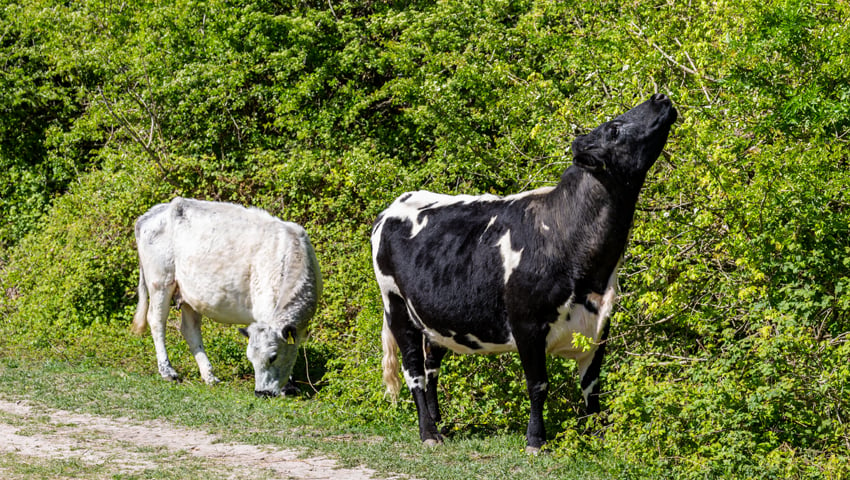A STUDY by eight UK scientists, including Professor Myles Allen and Dr Michelle Cain, has been welcomed by the Agriculture and Horticulture Development Board (ADHB). The research paper once again demonstrates the importance of of the metric GWP* for more accurately assessing the climate impact of methane originating from livestock.
The standard metric used to assess the carbon footprint of a system (GWP100) treats all gases as though they behave in the same way as the long-lived carbon dioxide (CO2). By contrast, GWP* accurately characterises the warming behaviour of methane, a short-lived gas, with a half-life of about 10 years. If a herd of cows remains the same size for 20 years, then while their methane emissions continue, there is no new warming from that herd: each emission is essentially replacing another. There was a pulse of warming when that herd was first established, but there’s no additional ongoing warming from that herd.
GWP*, and the associated research from the University of Oxford, was first published in 2018 and was accepted shortly afterwards by the Intergovernmental Panel on Climate Change (IPCC) in its 1.5C report.
In 2021, in AR6, the IPCC stated clearly that, ‘Expressing methane emissions as CO2 equivalent emissions using GWP-100 overstates the effect of constant methane emissions on global surface temperature by a factor of 3-5 […] while understating the effect of new methane emission source by a factor of 4-5′. (IPCC AR6 Ch7 pg123.)
While the farming industry in New Zealand was quick to engage with the science, farmers’ organisations in the UK were relatively slow.
Instead the science was picked up in 2018 and promoted by specialists from Farmwel and FAI Farms. One of the team, ffinlo Costain (now chief editor of 8.9ha), gave a TEDx Talk in 2022 in which he explained that “when we use the revised metric, GWP*, the global warming impact of the methane from a farm with ruminants typically falls by around 70% – what remains is important – but it can be more easily mitigated, through a combination of, for example, tree planting and hedge planting, and soil carbon sequestration. Methane from ruminants makes a difference – but it’s not a primary cause of global warming.”
The new study, published in Environmental Research, assessed the environmental impact of a pasture-based beef system using an broad range of factors, metrics, assessments and scenarios, including GWP*, which demonstrated a dramatic effect on results.
ADHB says that “Its conclusion supports the long-standing view that current Life Cycle Assessments (LCAs) used to assess the environmental impact of foods are far too simplistic and fail to acknowledge distinct nuances within agricultural systems, particularly the characteristics of biogenic methane released by livestock.”
This most recent study provides significant additional evidence supporting the adoption of GWP* as it accurately reflects the warming impact of methane, which in turn could have a significant impact on future recommendations to policy makers and customers.
AHDB’s Livestock Science and Environment Director, Chris Gooderham, said, “AHDB welcomes this acknowledgement of GWP* from the scientific community, and as an evidence-based organisation, we support emerging scientific debate and discussion to ensure the accurate measurement of our industry’s impact on the climate. Early analysis by our experts suggests that when applying the more accurate GWP*, the warming impact of methane emitted by UK livestock could be much less than currently reported, casting serious doubt on the current narrative that UK livestock are causing global warming.”
